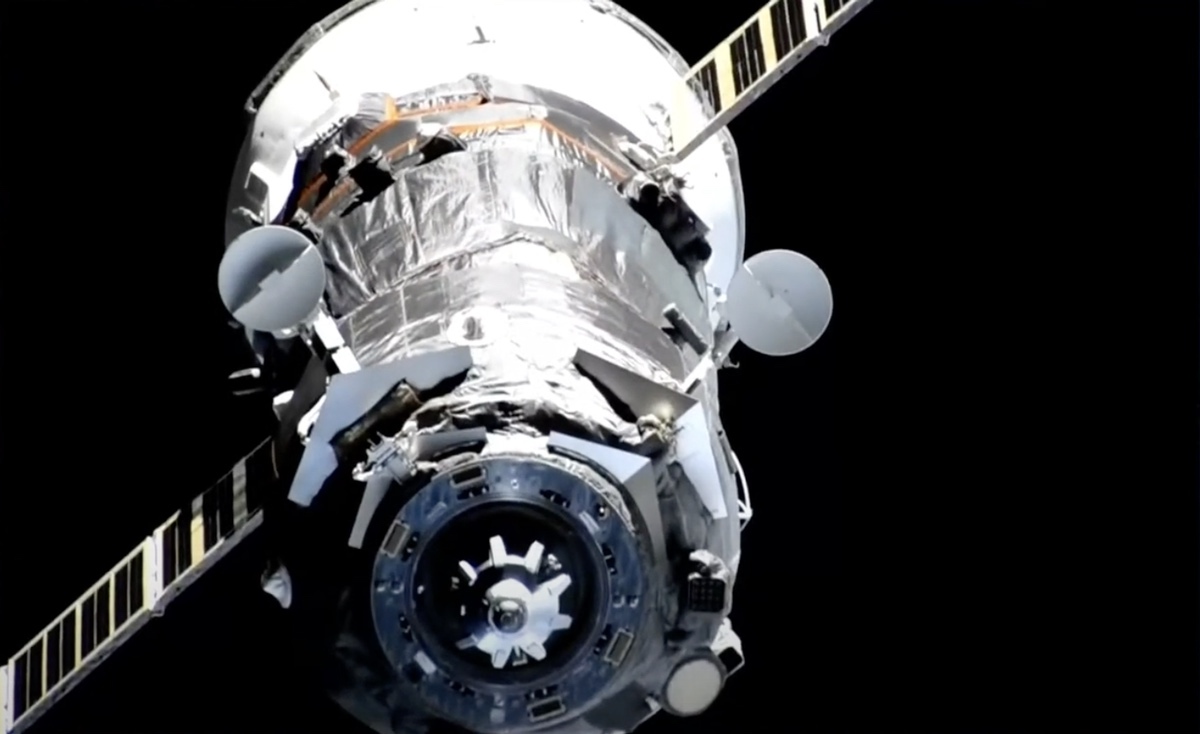20.02.2023

The Progress MS-21 spacecraft after undocking from the International Space Station. A visual inspection after undocking failed to find evidence of damage from a coolant leak a week earlier. Credit: Roscosmos TV
WASHINGTON — Russia is moving ahead with the uncrewed launch of a Soyuz spacecraft to the International Space Station after the post-undocking inspection of a Progress cargo spacecraft failed to show damage from a coolant leak.
Roscosmos announced Feb. 18 that the council of designers at RSC Energia has recommended the Soyuz-2.1a launch of the Soyuz MS-23 spacecraft take place at 7:32 p.m. Eastern Feb. 23. That would set up the spacecraft to dock with the station two days later, shortly before the arrival of the SpaceX Crew-6 mission currently scheduled to launch early Feb. 26.
Soyuz MS-23 is launching without a crew because of a coolant leak in the Soyuz MS-22 spacecraft in December that led Roscosmos to conclude the spacecraft could not safely return its three-person crew. Soyuz MS-23 will replace Soyuz MS-22, and that damaged spacecraft will return to Earth without a crew.
The launch decision, Roscosmos said, came after an inspection of the radiator on Soyuz MS-23 while being prepared for launch at the Baikonur Cosmodrome. Those inspections revealed no damage to it.
The announcement came after the Progress MS-21 cargo vehicle undocked from the station late Feb. 17. That spacecraft also suffered a coolant leak Feb. 11, prompting Roscosmos to delay the Soyuz MS-23 launch from Feb. 19 in order to investigate the problem. Roscosmos initially said that the Soyuz MS-23 launch could be delayed to early March, but didn’t explain in its latest announcement why it moved it back up to February.
After undocking, cosmonauts on the station sent commands to rotate the Progress spacecraft about 180 degrees “so that we can get additional visual inspections and documentation of where the coolant leak occurred,” said Jeff Arend, manager of NASA’s ISS systems engineering and integration office, during a Feb. 17 briefing about the upcoming Boeing CST-100 Starliner crewed mission to the station.
High-resolution video broadcast during the undocking, though, failed to show any obvious signs of damage like that seen on Soyuz MS-22. While Roscosmos planned to deorbit Progress just one orbit after undocking, it delayed those plans while it studied data it received.
Roscosmos announced early Feb. 18 that it would proceed with deorbiting Progress, with reentry over the South Pacific scheduled for 10:57 p.m. Eastern. It earlier stated that inspections did not reveal any damage to the spacecraft, and had even considered redocking Progress to the station for additional studies.
Arend noted that the Progress undocking had been scheduled since late December and was not affected by the coolant leak. That coolant system regulates temperatures for the spacecraft’s avionics, and he said even without it the spacecraft should be able to operate normally for its deorbiting.
“Our Russian colleagues have done assessments of how long they can operate that vehicle without cooling, and we’re well within limits,” he said. “We think all of the avionics will operate as planned and there has been no impact to the propulsion system at all.”
Quelle: SN
